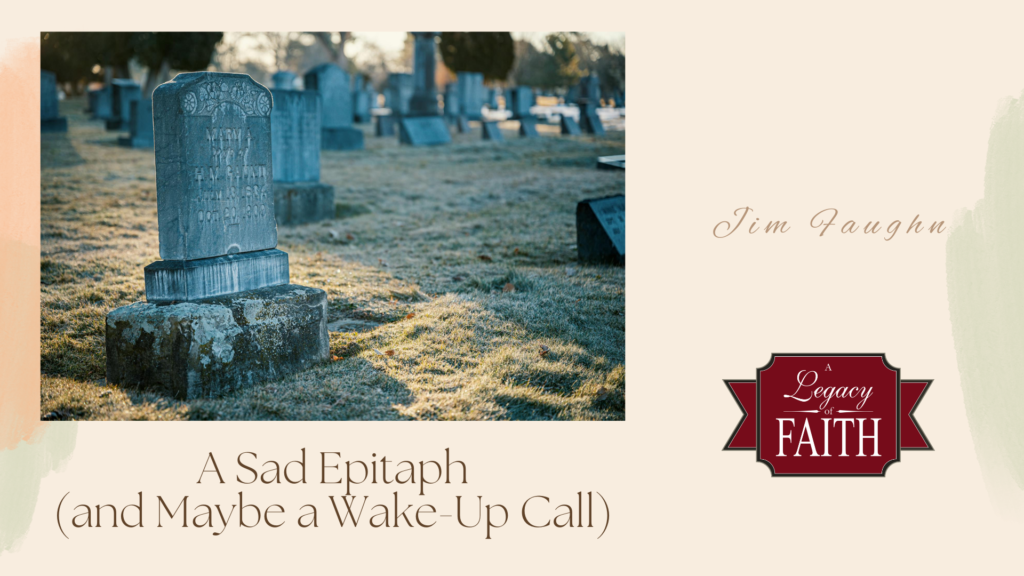A Sad Epitaph (and Maybe a Wake-Up Call)
After a kingdom that was once united divided into Israel and Judah, a man by the name of Jehoram became the fifth king of Judah. It would be an understatement to suggest that he was not one of their better kings. The book of 2 Chronicles is not the only place in The Bible that has information about him, but I will confine my thoughts here to what we find there.
The twenty-first chapter of 2 Chronicles uses only twenty verses to sum up the entire reign of this man. The verbal picture it paints is (again to use another understatement) not at all pretty. If you have the interest and the time, it might be helpful to read those twenty verses.
As I was reading that chapter recently from more than one translation of the Bible, four words from the last verse seemed to jump off of the page as I read them.
Here is that verse without those four words:
He was thirty-two years old when he began to reign, and he reigned eight years in Jerusalem. And he departed ______ ______ ________ ___________. They buried him in the city of David, but not in the tombs of the kings. (2 Chron. 21:20, ESV)
Other translations may use slightly different words or arrangement of the words, but they all have the same message. The words left out of this translation are…
…to no one’s regret…
Isn’t that difficult to imagine? Isn’t it hard to believe that a person could rise to the level of ruling a nation and not have any mourners at all when he died?
I am under no illusion that I will be remembered for any significant length of time once I am gone. I haven’t seen any statues of myself going up anywhere to help people remember me. Nobody is lining up to interview me in order to write my biography so that future generations can read about me. Like most people, by the time the fourth or fifth (or maybe even third) generation after me comes along, any real memories about me will have faded into obscurity.
While that is the case, I think that I may be like most other people in at least one other way, though. I believe that most of us would like to think that our departures from this life would be regretted by at least some of those who do know us while we are living.
As I type these words, I am thinking back a few days to a memorial service for a very dear friend and brother in Christ. Many who read this may have never known him and may have never even heard of him, but the church building was full of people who did know and love him. All of us deeply regretted this good man’s departure.
Consider the contrat. Long ago, one man “had it all” except for the love and respect of others. More recently, another man had almost nothing of what that king had, but he had (and has) what the king never had.
While I’m still living, I pray that I’m still learning. I’m also thinking that I might need to wake up to what (and who) is truly important.
AUTHOR: Jim Faughn



